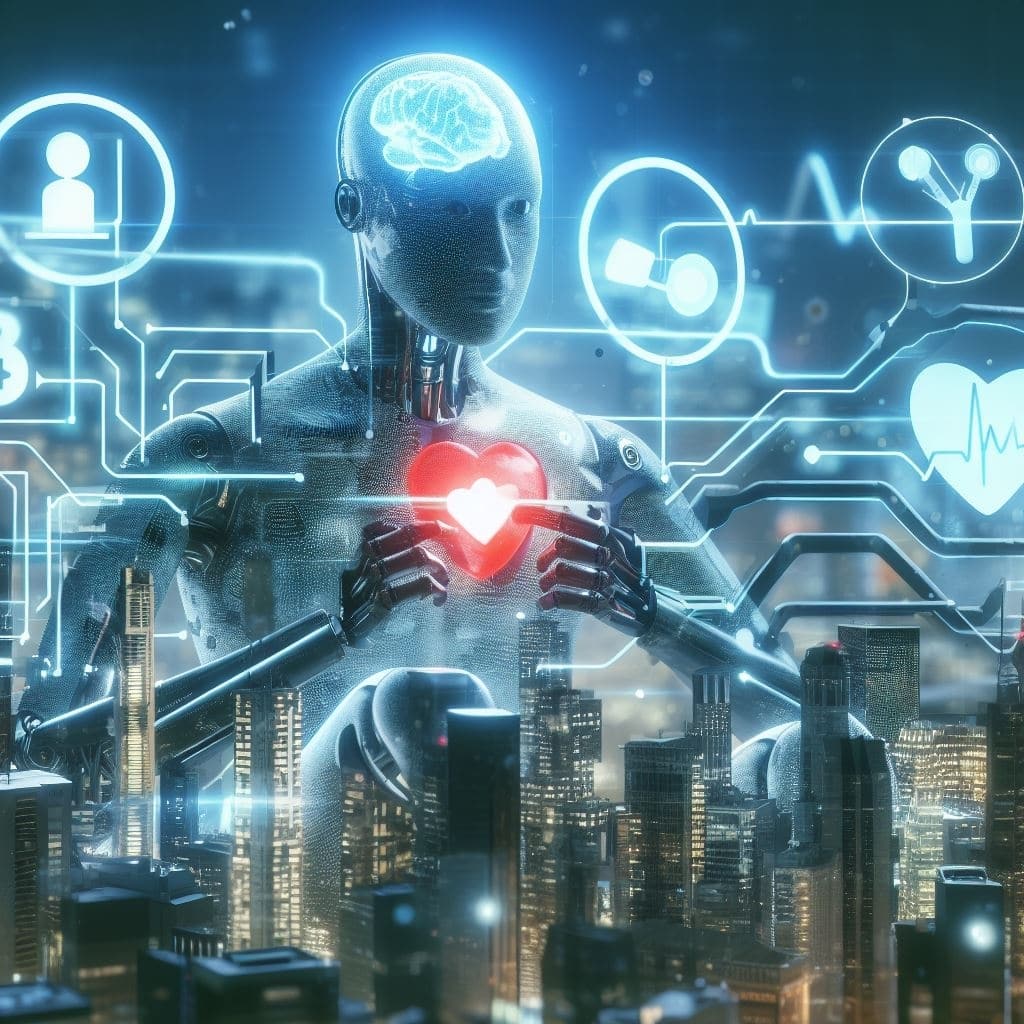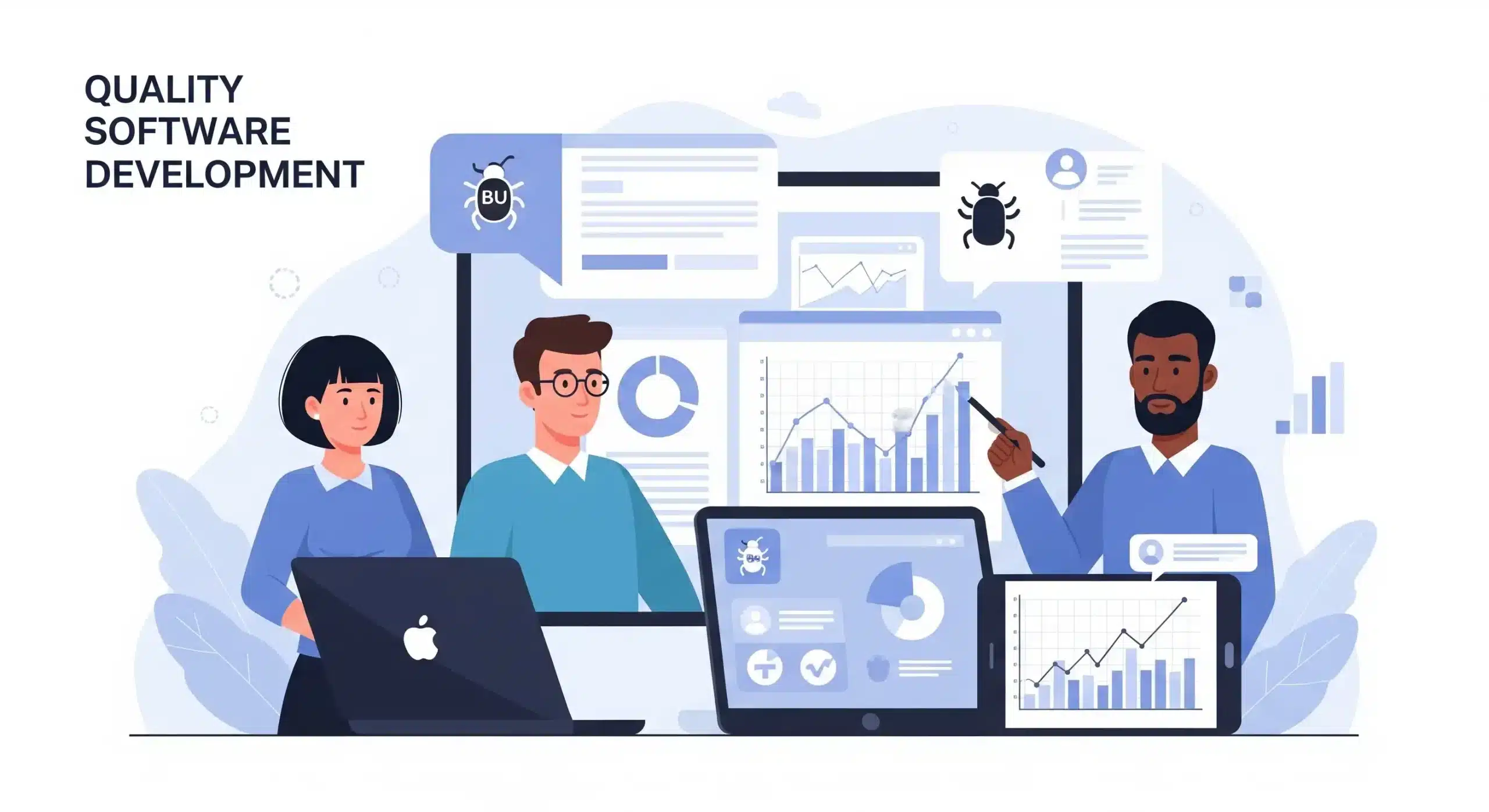AI in Mental Health: Illuminating a $4.5 Billion Path to Healing by 2026

In a world where Artificial Intelligence (AI) continually unveils its potential across diverse sectors, it’s the realm of mental health that now stands as the next frontier. With the global mental health crisis spiraling, AI promises transformative breakthroughs in how we diagnose, treat, and support individuals grappling with issues. This piece delves into the hopeful prospects of AI, revealing not just its potential, but also the burgeoning market it’s creating.
AI-powered tools are already showing promise in providing personalized therapy, early detection of these conditions through data analysis, and even virtual support systems that are accessible anytime, anywhere. These innovations not only aim to enhance the efficacy of condition’s interventions but also democratize access to care, potentially reaching underserved populations globally. In this blog, we will explore these exciting developments in AI for mental health and discuss how they are shaping the future of psychological well-being.
Unveiling the Market Potential
Recent market research paints a compelling picture: the AI in this industry market is poised to swell to a whopping $4.5 billion by 2026. The reasons behind this meteoric rise are manifold, fueled by a surge in these disorders, a shortfall in mental health professionals, and the burgeoning embrace of AI technologies.
The demand for effective, scalable solutions in mental health is intensifying, driven by the need for accessible and timely interventions. AI’s ability to offer personalized treatment plans, analyze vast datasets to predict the trends, and provide continuous support aligns perfectly with these growing needs. Moreover, as AI technologies become more sophisticated and integrated into healthcare systems worldwide, their potential to revolutionize the care delivery becomes increasingly evident.
A Beacon in the Global Mental Health Crisis
The global mental health crisis is an urgent call for innovative solutions. Here, AI takes center stage, offering personalized and readily accessible mental healthcare to individuals worldwide. With AI-driven chatbots and virtual assistants, people gain round-the-clock access to guidance and support, unburdening mental health professionals and offering immediate aid to those in need.
AI’s ability to analyze vast amounts of data quickly and accurately enables it to provide tailored interventions based on individual needs and preferences. This capability not only enhances the efficiency of mental health services but also ensures that individuals receive timely support tailored to their unique circumstances. Moreover, AI-powered tools can track mental health trends in real-time, facilitating proactive interventions and optimizing resource allocation within healthcare systems. As AI continues to evolve, its role in transforming mental health care delivery promises to be pivotal, addressing critical gaps and improving outcomes for individuals worldwide.
Revolutionizing Diagnosis and Treatment
AI possesses the power to redefine the landscape of mental health diagnosis and treatment. By sifting through vast troves of data, AI algorithms can spot patterns and predict the likelihood of mental health conditions with remarkable precision. This translates to early detection and intervention, promising better outcomes and reducing the overall strain on healthcare systems.
Furthermore, AI can craft bespoke treatment plans tailored to an individual’s unique needs and preferences. Through machine learning algorithms, it continually adapts the approach by analyzing a patient’s response to different treatments, optimizing outcomes. This personalized approach has the potential to revolutionize the healthcare, ensuring that each person receives the most effective treatment.
A Helping Hand for Mental Health Professionals
AI can offer much-needed respite to mental health professionals by automating routine tasks and offering valuable insights. Natural Language Processing (NLP) algorithms can mine patient data, including electronic health records and therapy session transcripts, to extract valuable information and trends. This assists mental health professionals in making informed decisions, streamlining their workflows, and dedicating more time to quality patient care.
Additionally, AI’s ability to analyze patterns in patient data can lead to early detection of mental health issues, allowing for timely interventions and personalized treatment plans. By automating administrative tasks such as scheduling appointments and managing documentation, AI frees up mental health professionals to focus on building therapeutic relationships and delivering effective care. In essence, as AI technology continues to advance, its integration into mental health practices holds promise for enhancing efficiency, improving patient outcomes, and addressing the growing demand for mental health services globally.
Navigating Ethical Waters and Challenges
As with any technological advancement, the marriage of AI and mental health comes with its share of ethical considerations and challenges. Safeguarding data privacy, addressing biases in algorithms, and preserving a human-centered approach stand as pivotal issues. It’s imperative to strike a harmonious balance between the benefits of AI and the enduring need for human empathy and connection in mental healthcare.
Moreover, ensuring transparency in AI-driven mental health applications is crucial. Patients and healthcare providers must understand how AI algorithms operate, what data is collected, and how it is used to inform treatment decisions. Furthermore, addressing ethical concerns around consent, data security, and the potential for algorithmic biases is paramount to fostering trust in AI technologies within mental health settings. By integrating ethical guidelines and regulatory frameworks into the development and deployment of AI solutions, we can harness the transformative potential of AI while upholding the values of patient autonomy, dignity, and ethical practice in mental healthcare. In this blog, we will explore these ethical considerations in-depth, offering insights into how AI can augment, rather than replace, the human touch in mental health care.
Why Cloudester Software
At Cloudester Software, we stand at the forefront of AI innovation, leveraging cutting-edge technologies to address complex challenges across diverse industries, including mental health. Our commitment to ethical AI development ensures that our solutions prioritize patient privacy, data security, and the human-centered approach essential in mental healthcare. With a proven track record in developing robust AI-driven applications, we empower the professionals with tools that enhance diagnostic accuracy, treatment efficacy, and patient support. Moreover, by partnering with Cloudester Software, organizations can harness the transformative potential of AI while upholding the highest standards of ethical practice, paving the way for a future where technology and compassion converge to improve the outcomes globally.
The potential of AI in mental health is monumental, with a projected market value of $4.5 billion by 2026. By embracing AI, we can confront the global mental health crisis, enrich diagnosis and treatment, and support professionals in delivering quality care. However, this integration demands ethical responsibility, ensuring that the human element remains the heart of mental healthcare. With the right approach, AI in industry possesses the capacity to transform lives and illuminate a brighter future for individuals wrestling with these health challenges.









